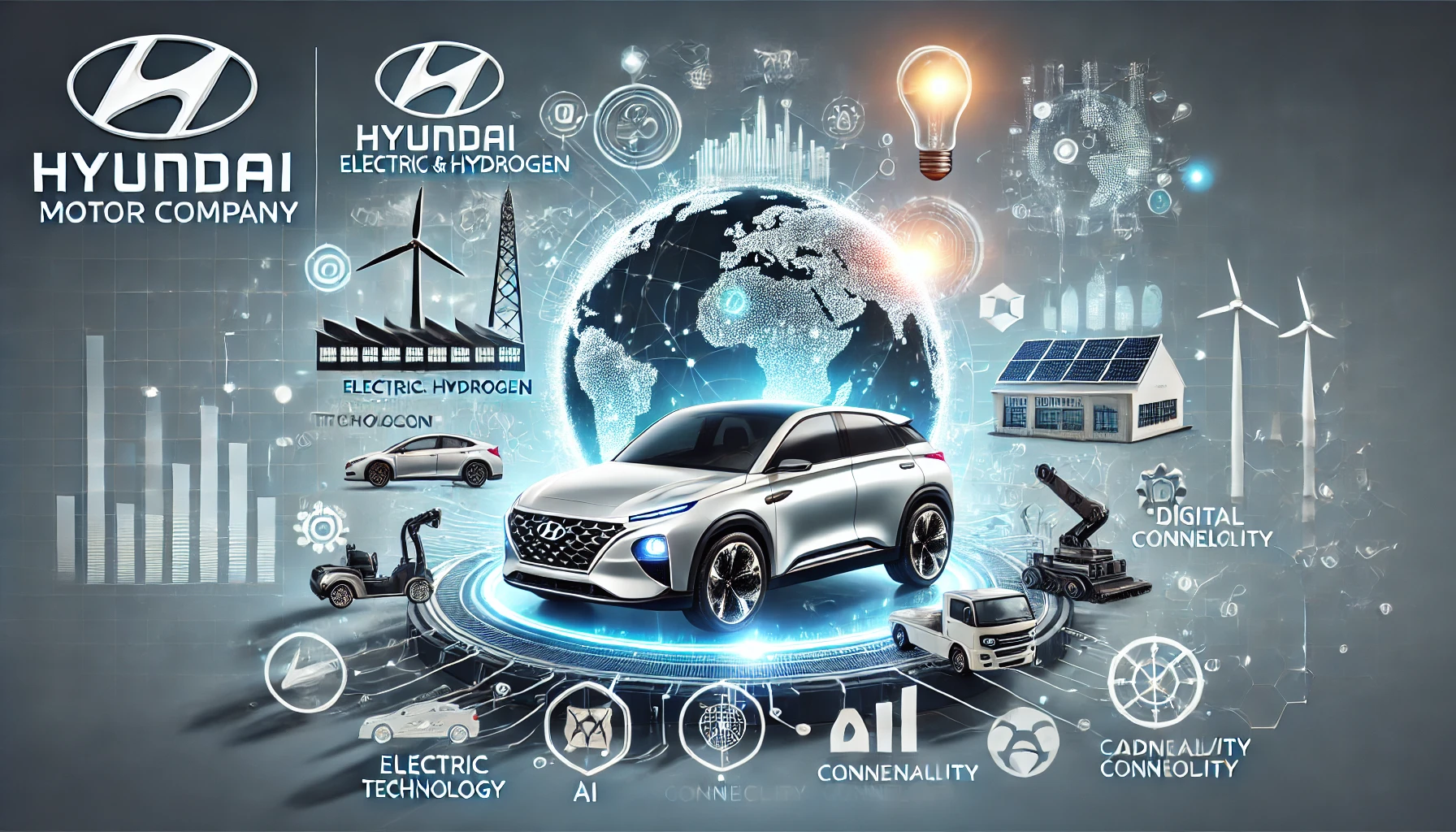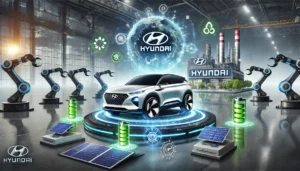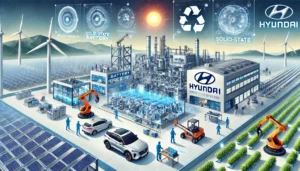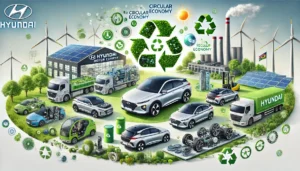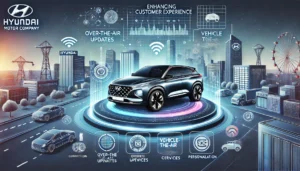Introduction: Hyundai Motor Company is rapidly evolving beyond its traditional automotive roots, embarking on a transformative journey to become a global leader in mobility, technology, and sustainability. Recent strategic moves, such as acquiring a robotics company and establishing a cutting-edge battery factory in South Korea, highlight Hyundai’s unwavering commitment to innovation and global expansion. This comprehensive post delves into Hyundai’s multifaceted strategies, including some lesser-known initiatives, that are propelling the company toward a bright and sustainable future.
1. Hyundai Motor Company’s Vision for the Future of Mobility
Hyundai is redefining mobility by embracing electric vehicles (EVs), autonomous driving, and advanced robotics. The company aims to lead the transformation of the global automotive landscape with a focus on sustainability and technological excellence.
Electric Vehicles (EVs):
Hyundai is aggressively expanding its EV lineup with models like the Ioniq 5, Ioniq 6, and the upcoming Ioniq 7. By 2025, Hyundai plans to introduce over 23 electric models, emphasizing both affordability and high performance. This expansion is supported by significant investments in EV technology and infrastructure, including partnerships with charging network providers to enhance accessibility for consumers.
Hydrogen Fuel Cell Technology:
Beyond EVs, Hyundai is a pioneer in hydrogen fuel cell technology. The NEXO, Hyundai’s flagship hydrogen-powered SUV, exemplifies the company’s commitment to alternative energy sources. Hyundai envisions hydrogen as a crucial energy carrier, particularly for heavy-duty vehicles and regions with limited EV infrastructure. Investments in hydrogen production and refueling infrastructure are central to this vision, positioning Hyundai as a leader in the hydrogen economy.
Autonomous Driving:
Hyundai is investing heavily in autonomous driving technologies. Collaborations with companies like Aurora and investments in AI-driven safety systems are positioning Hyundai to be at the forefront of self-driving vehicle development. The company’s autonomous vehicles aim to enhance safety, reduce traffic congestion, and provide seamless mobility solutions.
2. Acquiring a Robotics Company: Expanding Horizons Beyond Automobiles
Hyundai’s acquisition of a leading robotics firm marks a significant step towards integrating advanced automation and artificial intelligence into its operations and product offerings.
Advanced Manufacturing Automation:
The robotics division enhances Hyundai’s manufacturing processes through the deployment of intelligent robots that increase efficiency, reduce costs, and ensure higher quality standards. These robots handle repetitive tasks with precision, allowing human workers to focus on more complex and value-added activities.
Consumer-Focused Robotics Solutions:
Hyundai is exploring robotics applications in consumer products, such as home automation systems and personal assistant robots. By diversifying its portfolio, Hyundai taps into new markets, offering innovative solutions that complement its automotive products.
Collaborative Robotics (Cobots):
Developing cobots that work alongside human workers, Hyundai enhances workplace safety and productivity. These cobots assist in tasks that require dexterity and adaptability, setting new benchmarks in the automotive industry for human-robot collaboration.
3. Battery Factory Investment: Powering the Next Generation of Electric Vehicles
Hyundai’s decision to build a state-of-the-art battery factory in South Korea is a cornerstone of its EV strategy, ensuring a reliable supply of high-performance batteries.
Vertical Integration:
Owning its battery production allows Hyundai to control the entire supply chain, from raw materials to finished products. This vertical integration reduces dependencies on external suppliers, enhances production agility, and ensures a steady supply of batteries for Hyundai’s expanding EV lineup.
Innovative Battery Technologies:
The factory focuses on developing solid-state batteries, which offer higher energy density and faster charging times compared to traditional lithium-ion batteries. Solid-state batteries are safer and have a longer lifespan, positioning Hyundai at the cutting edge of battery technology.
Sustainable Manufacturing Practices:
Hyundai is implementing green manufacturing processes in the battery factory, utilizing renewable energy sources and recycling initiatives to minimize environmental impact. The factory incorporates energy-efficient systems and aims to achieve zero-waste operations, aligning with Hyundai’s sustainability goals.
4. Strategic Partnerships and Global Expansion
Under the visionary leadership of its CEO, Hyundai is forging strategic partnerships and expanding its global footprint to solidify its position as a leading global enterprise.
Tech Collaborations:
Hyundai has partnered with tech giants like NVIDIA for AI and autonomous vehicle technologies, and with Google for enhancing in-car connectivity and infotainment systems. These collaborations enable Hyundai to leverage cutting-edge technologies and accelerate the development of innovative products.
Global Production Hubs:
Expanding manufacturing facilities in key regions such as North America, Europe, and Southeast Asia ensures Hyundai can meet local demand efficiently and mitigate regional supply chain disruptions. These hubs also facilitate the customization of vehicles to cater to regional preferences and regulatory requirements.
Mobility as a Service (MaaS):
Hyundai is investing in MaaS platforms, integrating ride-sharing, car-sharing, and public transportation into seamless mobility solutions. By offering comprehensive mobility services, Hyundai caters to the evolving needs of urban populations, providing flexible and sustainable transportation options.
5. Hyundai Motor Company’s Commitment to Sustainability and Innovation
Sustainability is at the heart of Hyundai’s strategic initiatives, driving the company to develop eco-friendly products and adopt sustainable business practices.
Carbon-Neutral Goals:
Hyundai aims to achieve carbon neutrality by 2045. This ambitious goal includes transitioning to renewable energy, optimizing energy consumption, and investing in carbon capture technologies. Hyundai is also committed to reducing the carbon footprint of its vehicles through the use of lightweight materials and energy-efficient manufacturing processes.
Circular Economy Initiatives:
The company is implementing circular economy principles by recycling materials from end-of-life vehicles and repurposing them in new manufacturing processes. This approach reduces waste, conserves resources, and minimizes environmental impact, reinforcing Hyundai’s commitment to sustainability.
Green Hydrogen Production:
Hyundai is investing in green hydrogen production facilities, ensuring that hydrogen used in its fuel cell vehicles is produced sustainably. By utilizing renewable energy sources for hydrogen production, Hyundai reduces the overall carbon footprint and supports the growth of the hydrogen economy.
6. Innovation in Smart Mobility and Urban Solutions
Hyundai is not just focused on vehicles but is also innovating in the broader scope of smart mobility and urban living solutions.
Smart Cities Integration:
Hyundai is collaborating with urban planners and tech companies to develop smart city infrastructure. This includes integrating connected vehicles, smart grids, and IoT devices to enhance urban living standards. Hyundai’s smart city initiatives aim to create sustainable, efficient, and livable urban environments.
Electric and Autonomous Public Transport:
Investing in electric buses and autonomous shuttles, Hyundai aims to revolutionize public transportation. These eco-friendly and automated solutions make public transit more efficient, reducing emissions and improving accessibility for commuters.
Personal Air Mobility (PAM):
Exploring the future of personal air transport, Hyundai is developing electric vertical takeoff and landing (eVTOL) aircraft. These innovative vehicles offer new modes of urban mobility, reducing traffic congestion and providing faster, more flexible transportation options.
7. Research and Development: Driving Innovation Forward
Hyundai’s robust R&D efforts are crucial to its innovation strategy, ensuring the company remains at the forefront of technological advancements.
Hyundai Motor Group Innovation Center:
Located in Silicon Valley, this center fosters collaboration with startups and tech innovators. It accelerates the development of cutting-edge automotive technologies, focusing on AI, autonomous driving, and smart mobility solutions.
Advanced Materials Research:
Hyundai is investing in research on lightweight and durable materials, enhancing vehicle performance and safety while reducing environmental impact. Innovations in materials science contribute to the development of more efficient and sustainable vehicles.
AI and Machine Learning:
By integrating AI and machine learning into various aspects of its operations, Hyundai improves everything from design processes to predictive maintenance in vehicles. These technologies enhance operational efficiency, product quality, and customer satisfaction.
8. Enhancing Customer Experience and Connectivity
Hyundai is dedicated to enhancing the customer experience through advanced connectivity and personalized services.
Hyundai Digital Services:
Offering a suite of digital services, Hyundai provides customers with seamless connectivity and personalized experiences. These services include over-the-air (OTA) updates, remote vehicle diagnostics, and advanced infotainment systems, ensuring that Hyundai vehicles remain up-to-date with the latest technology.
Connected Car Technology:
Hyundai Motor Company’s connected car technology enables real-time communication between vehicles and infrastructure, enhancing safety and efficiency. Features such as vehicle-to-everything (V2X) communication support autonomous driving and smart city initiatives.
Personalization and Customization:
Hyundai offers extensive customization options, allowing customers to personalize their vehicles to meet individual preferences and needs. From exterior colors to interior features, Hyundai ensures that each vehicle reflects the unique tastes of its owner.
9. Financial Performance and Market Position
Hyundai’s strategic initiatives have significantly impacted its financial performance and market position, reinforcing its status as a global automotive leader.
Revenue Growth and Profitability:
Hyundai has reported consistent revenue growth driven by its expanding EV lineup, strategic acquisitions, and global expansion. The company’s focus on high-margin products and operational efficiencies has enhanced profitability, enabling continued investment in innovation and sustainability.
Market Share Expansion:
Hyundai’s aggressive entry into new markets and segments has resulted in increased market share globally. The company’s competitive pricing, high-quality products, and strong brand reputation contribute to its growing presence in key regions.
Stock Performance and Investor Confidence:
Hyundai’s robust financial performance and strategic vision have boosted investor confidence. The company’s stock has seen steady growth, reflecting its strong market position and future prospects.
10. Corporate Social Responsibility (CSR): Hyundai’s Commitment to Society and the Environment
Hyundai is deeply committed to corporate social responsibility, ensuring that its growth positively impacts society and the environment.
Community Engagement:
Hyundai actively participates in community development initiatives, including educational programs, disaster relief efforts, and local infrastructure projects. By investing in communities, Hyundai fosters positive relationships and supports sustainable development.
Environmental Stewardship:
Beyond sustainability in its operations, Hyundai engages in broader environmental stewardship activities. This includes tree planting campaigns, wildlife conservation projects, and partnerships with environmental organizations to promote biodiversity and ecosystem health.
Employee Welfare and Diversity:
Hyundai prioritizes employee welfare, offering comprehensive benefits, professional development opportunities, and a supportive work environment. The company also promotes diversity and inclusion, ensuring a workforce that reflects global diversity and fosters innovation through varied perspectives.
11. Future Outlook: Navigating Challenges and Seizing Opportunities
Hyundai Motor Company is well-positioned to navigate the challenges of the rapidly evolving automotive industry and seize emerging opportunities.
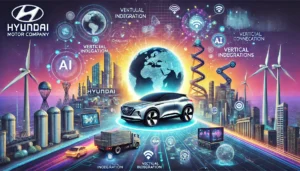
Adapting to Regulatory Changes:
As governments worldwide implement stricter emissions regulations and promote sustainable transportation, Hyundai is adapting by accelerating its EV and hydrogen fuel cell programs. Compliance with these regulations ensures Hyundai remains competitive and avoids potential penalties.
Addressing Supply Chain Disruptions:
Hyundai Motor Company’s vertical integration and strategic partnerships help mitigate supply chain disruptions. By securing key components like batteries and semiconductors in-house, Hyundai reduces dependency on external suppliers and enhances resilience against global supply chain challenges.
Embracing Technological Advancements:
Continuous investment in R&D and partnerships with tech innovators ensure Hyundai stays ahead of technological trends. Embracing advancements in AI, robotics, and connectivity allows Hyundai to offer cutting-edge products and services that meet evolving consumer demands.
Capitalizing on Emerging Markets:
Hyundai is expanding its presence in emerging markets such as India, Southeast Asia, and Africa, where there is significant demand for affordable, fuel-efficient vehicles. Tailoring products to local preferences and establishing production facilities in these regions position Hyundai for sustained growth.
Conclusion: A Bright and Sustainable Future for Hyundai Motor Company
Hyundai Motor Company’s strategic acquisitions, investments in battery technology, and unwavering commitment to sustainability are driving its transformation into a global leader in mobility and technology. By embracing innovation, forging strategic partnerships, and expanding its global presence, Hyundai is not only preparing for the future but actively shaping it. The company’s holistic approach to sustainable growth and technological excellence ensures that it will remain a formidable force in the automotive industry and beyond for years to come.

